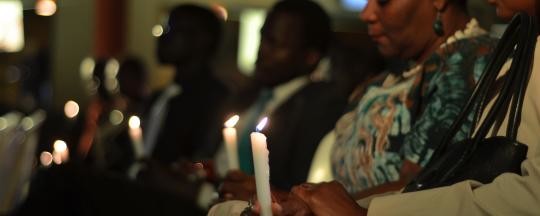Focus on the Agreement is a series of reports broadcast on Radio Tamazuj to explain the contents of the peace deal signed in August 2015 between South Sudan's warring parties.
In our previous episode we explained that officials who committed war crimes will not have immunity from the hybrid court established with African and South Sudanese judges. In today's episode we look at the role of the Compensation and Reparation Authority.
Chapter 5, Article 4 of the peace agreement says that this institution should be established before the end of February 2016. It will be headed by a committee that includes the parties to the peace agreement as well as representatives of women, religious leaders, the business community, civil society and traditional leaders.
The purpose of the Compensation and Reparation Authority is to assist people who lost property destroyed by the conflict and to help them to rebuild their lives. The peace agreement does not say whether families of victims who died during the war will also be eligible for assistance and the IGAD mediation did not respond to a request for clarification.
However, the agreement says that the work of the committee will be guided by a law that must be passed by parliament, so this is likely something that the parliament will decide.
Also, the peace agreement says that the Compensation Authority should cooperate with the Committee for Truth, Reconciliation and Healing. For example, a victim may approach the truth committee, and the truth committee may later refer the person's case to the Compensation Authority.
Tomorrow we will look at the question of whether somebody indicted for war crimes will be allowed to participate in the transitional government or not.




